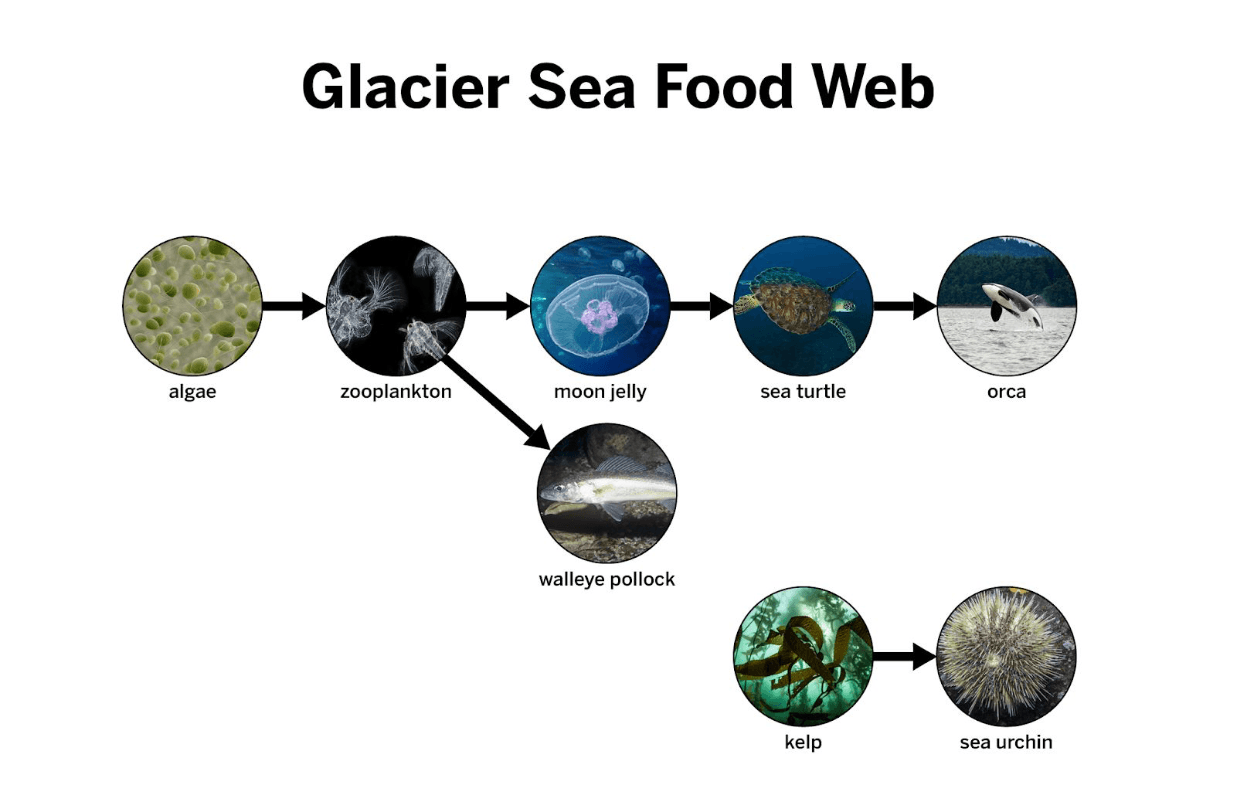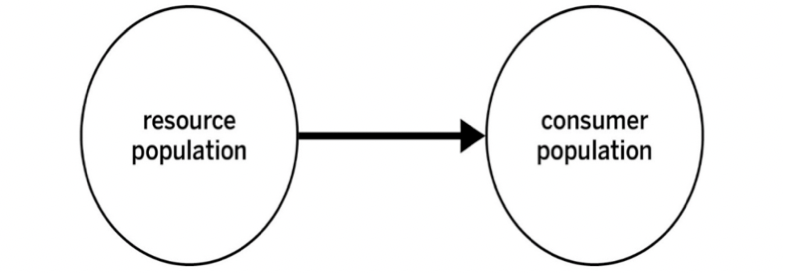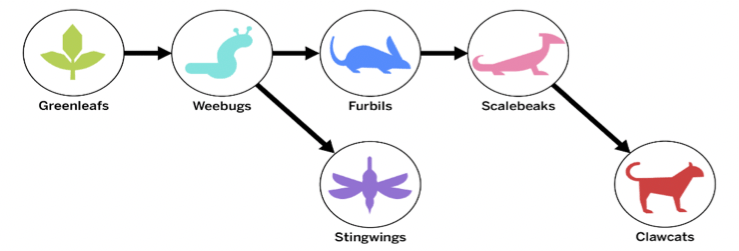Over 50 years, the size of a tiger population increased. What best explains the increase in the size of the tiger population?
A lot of tigers were born and none of them died
Fewer tigers were born than died.
More tigers were born than died.
3. More tigers were born than died.
A molecule that organisms can use to release the energy they need to survive
Energy Storage Molecule
What is a resource population?
The population that is eaten by another population for energy storage molecules.
There has been a sudden decrease in the amount of zooplankton in the food web. What impact would this have on both the moon jelly and walleye pollock?

less zooplankton pop. = less ESM available for Moon jelly & walleye pollock = less reproduction = less births than deaths = decrease in population.
A large population of ducks live in an area with a lake. In the last 40 years, the size of the duck population stayed the same. What must be true about the duck population during the last 40 years?
The number of ducks that were born were the same as the number of ducks that died.
No ducks were born and no ducks died.
Humans started protecting the duck population so they stopped dying.
The ducks did not have any baby ducks during these years.
1. The number of ducks that were born were the same as the number of ducks that died.
What is an ecologist?
a scientist who studies the interactions of organisms with each other and their environment
What is a consumer population? What do they do?
The population that is eating another population for energy storage molecules.
Explain what the arrow means in the food web below.

Arrow represent the flow of energy
(____ gives energy to _____)
A population of mice lives in the northeastern United States. Over the last 50 years, the size of the mouse population decreased. What best explains the decrease in the size of the mouse population?
Fewer mice were born than died
A lot of mice died and no new mice were born.
More mice were born than died.
1. Fewer mice were born than died
Why do we need predation in an ecosystem?
Predation provides nutrients for the predators, and helps to keep prey populations from growing too large
Why do organisms need Energy storage molecules?
Organisms need energy storage molecules to reproduce and for energy to do things like fight, breathe and do anything we do!)
Analyze the food web and answer the following question: What change can you make to the food web that will cause the stingwing population to increase?

Answers will vary
A population of bluefish lives in the Gulf of Mexico. Over the last 50 years, the size of the bluefish population has decreased. What best explains the decrease in the size of the bluefish population?
A lot of bluefish died and no new bluefish were born.
More bluefish were born than died.
Fewer bluefish were born than died.
3. Fewer bluefish were born than died.
When two or more populations use the same resource, such as the same food source
Competition
True or false: Organisms also interact with each other, and help each other.
Give an example
TRUE! They need to interact in order to have a healthy sustainable ecosystem.
Examples: ANSWERS VARY
In the northwestern United States, both coyotes and wolves eat deer. The sizes of the populations have been stable for the last 6 years, but recently the size of the wolf population increased. What will likely happen to the coyote population?

Decrease
Why do apex predators such as eagles and hawks need energy?
Flying
Breathing
Digesting food
All of the above
4. All of the above
What is a food chain?
a model that shows what eats what and who receives energy from whom in an ecosystem (eating relationship)
What do mammals like tigers and zebras need energy for?
1. Running
2. Breathing
3. Digesting food
4. All of the above
4. All of the above
What are the three symbiotic relationships?
Mutualism, Commensalism, Parasitism